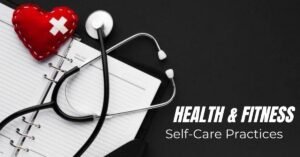Herbal products, botanical products, or phytomedicines are plant-based items used to treat illnesses or preserve health. Herbal medicines are products derived from plants that are intended solely for internal consumption.
Plant products are also used to make a large number of over-the-counter and prescription medications. However, these goods are FDA-regulated and only contain purified components. Whole plants or plant parts may be included in herbal supplements.
There are many different types of herbal medicine. They might be chopped, dried, powdered, or come in liquid or pill form. There are numerous applications for them, such as:
Herbal medicine has been used for thousands of years. The usage of herbal medicine is widespread in the United States today. They are not for everyone, though. The FDA and other regulatory bodies do not closely monitor them. Herbal medicine is still debatable because of this. Discuss any ailments or symptoms you may be experiencing with your healthcare professional. Talk about taking herbal medicine.
Herbal medicine and the FDA
The FDA regards herbal medicines as foods rather than medications. As a result, they are exempt from the same manufacturing, testing, and labelling requirements and laws that apply to medications.
Labels that describe how herbs can affect various bodily functions are now visible. However, it is illegal for herbal supplement labels to claim that herbs cure particular illnesses. This is because, unlike prescription or conventional over-the-counter medications, herbal supplements are not subject to clinical testing or the exact manufacturing requirements. There is no scientific evidence that a specific herb prevents or heals a particular illness.
One well-liked herbal supplement is St. John’s wort, for instance. In certain situations, it is believed to help treat depression. According to a product label, St. John’s wort “enhances mood.” However, it cannot assert that it cures a particular ailment, like depression.
Unlike medications, herbal supplements do not require standardization to ensure consistency from batch to batch. On the label of a supplement, some manufacturers might use the phrase standardized. However, it might mean different things to different manufacturers.
Steps to take when selecting herbal medicine:
Herbal medicine and prescription medications may interact. Some have powerful impacts. Avoid self-diagnosing and self-prescription. Consult your doctor before beginning a herbal supplement regimen.
Learn for yourself. Do your research on the herbs you are taking. For further information, speak with your healthcare professional and get in touch with producers of herbal medicine. A trustworthy and easily accessible source of knowledge about the effects of herbal supplements is a pharmacist. They can also offer practical details regarding any drug-herbal supplement interactions.
Pay close attention to the label’s instructions. Use only the recommended dosage if you take herbal supplements. Never exceed the recommended dosage. Look for information regarding the supplement’s contraindications. Find out if the supplement should be avoided due to any medical issues, drug interactions, or other circumstances.
Collaborate with an expert. Seek the assistance of a registered naturopathic healthcare professional or a skilled and certified herbalist with extensive experience in this field.
Keep an eye out for adverse consequences. Reduce the dosage or stop taking the supplement if you get any of the following symptoms: headache, nausea, dizziness, rash, or upset stomach. Seek medical attention if your symptoms do not go away. Or should they worsen?
Keep an eye out for allergic reactions. Breathing difficulties may result from a strong allergic reaction. Call 911 or the local emergency number for assistance if such an issue arises.
Do some research on the herbal firm you are using. Not all herbal supplements are created equally. Select a brand from a reliable manufacturer. Consider this:
Which herbal medicines are the most popular?
This is merely an informational list of popular herbal medicines. Discuss your personal health issues or symptoms with your healthcare professional. Avoid self-diagnosing. Prior to taking any herbal supplements, consult your healthcare physician.

Cohosh in black
The Native American term for rough is the source of the name of this eastern North American shrub-like plant. Its root structure is referred to here. It is typically used to treat vaginitis, uterine spasms, painful menstruation, and menopausal disorders.
The Echinacea
This is frequently used to strengthen the immune system. It is also thought to help prevent colds and the flu. Another name for this natural species in the United States is purple coneflower.
Primroses in the evening
This brilliant yellow flowering plant blooms at night, and its oil may help ease the symptoms of premenstrual syndrome (PMS) and arthritis.
Garlic
Cardiovascular disorders are typically treated with garlic. This includes elevated triglyceride and cholesterol levels associated with an increased risk of atherosclerosis.
Biloba ginkgo
Many ageing-related disorders are treated with this plant. Memory loss and poor circulation are examples of this.
Ginseng
To improve total body tone, this is used as a general tonic. It is thought to be beneficial for increasing vitality and strengthening stress tolerance.
The golden seal
Native to the United States, this herb is well-known for its antimicrobial and therapeutic effects. It is frequently used to treat flu and colds. It is also well-liked for relieving swollen or irritated nasal linings.
Green tea
This herb lowers cholesterol, aids in weight loss, prevents arteriosclerosis and some types of cancer, and fights excessive exhaustion.
Hawthorn
This is used to treat a number of heart-related ailments. It helps treat excessive blood pressure, heart failure, atherosclerosis, and angina.
Saw palmetto
Prostate enlargement may be treated with this. For men over 50, this is a common condition.
St. John’s Wort
This herb, which grows wild and has yellow blossoms, has been used for ages to cure mental illnesses. It is now often advised for mild to moderate depression.

It is crucial to keep in mind that the FDA does not regulate herbal supplements. They have not been put to the test in a clinical trial that has been approved by the FDA to demonstrate their efficacy in managing or treating medical issues. Discuss your symptoms with your healthcare physician. Prior to taking any herbal supplements, consult your healthcare physician.
Share your health practices, supplements, and medications with all of your healthcare providers. They will have a complete picture of your health thanks to this. It will contribute to ensuring coordinated, safe, and efficient care.
Ancient societies were where herbal medicine first appeared. It entails using plants medicinally to treat illnesses and improve overall health and wellness.
Certain herbs include chemicals that are potent, meaning they should be used with the same caution as prescription drugs. Synthetic forms of naturally occurring chemicals found in plants serve as the basis for a large number of pharmaceutical drugs. For example, the foxglove plant was used to make the cardiac medication digitalis.
Active components are found in herbal medications. Many herbal medicines have unidentified active components. A single active ingredient that comes from a plant source serves as the foundation for some pharmacological drugs. Herbal medicine practitioners think that if an active ingredient is used alone, it may lose its effectiveness or become less safe.
For example, the plant meadowsweet contains salicylic acid, which is used to manufacture aspirin. While meadowsweet naturally includes various components that reduce irritation from salicylic acid, aspirin can induce bleeding in the stomach lining.
Practitioners of herbal medicine assert that a plant’s whole impact is larger than the sum of its parts.
Recognize that herbal remedies may interfere with other prescription drugs.
Supplements and herbal remedies may negatively interact with prescription or over-the-counter medications you are currently using.
Supplementing with herbal remedies may increase the risk of adverse side effects or alter the efficacy of other medications you are taking. For instance, St. John’s Wort mainly boosts the effects of antidepressants while decreasing the effectiveness of different medicines.
It is always a good idea to discuss potential side effects and combinations with other medications with your doctor if you are thinking about taking herbal remedies .
.
Invest in herbal medicine supplies from a reliable vendor.
Not every natural remedy on the market is safe. Always buy from a source that carries goods from a reliable manufacturer or supplier, such as pharmacies, health food stores, supermarkets, or well-known professionals.
When buying herbal medications online, exercise caution. Foreign-sourced unregulated herbal remedies might not be produced to the same standards and quality as regulated ones. Products purchased online have occasionally been discovered to contain hazardous amounts of lead, mercury, or arsenic, which can have a significant negative impact on one’s health.
Regulations apply to Australian-made herbal medications. Regarding the efficacy and safety of the herbal remedy or supplements you are considering purchasing, speak with your pharmacist. It is advised that if you are thinking about using herbal medication, you:
Never stop taking prescription drugs without first talking to your physician.
If you intend to begin taking herbal medicine for your ailment, always let your doctor know.
Consult your physician, pharmacist, or other certified health professional for advice regarding the efficacy, safety, and quality of the herbal remedy.
Always buy goods from a reliable supplier. When purchasing herbal remedies or supplements made abroad, use caution.
All herbal medications should be used precisely as directed, and you should contact your doctor right away if you encounter any adverse side effects.






